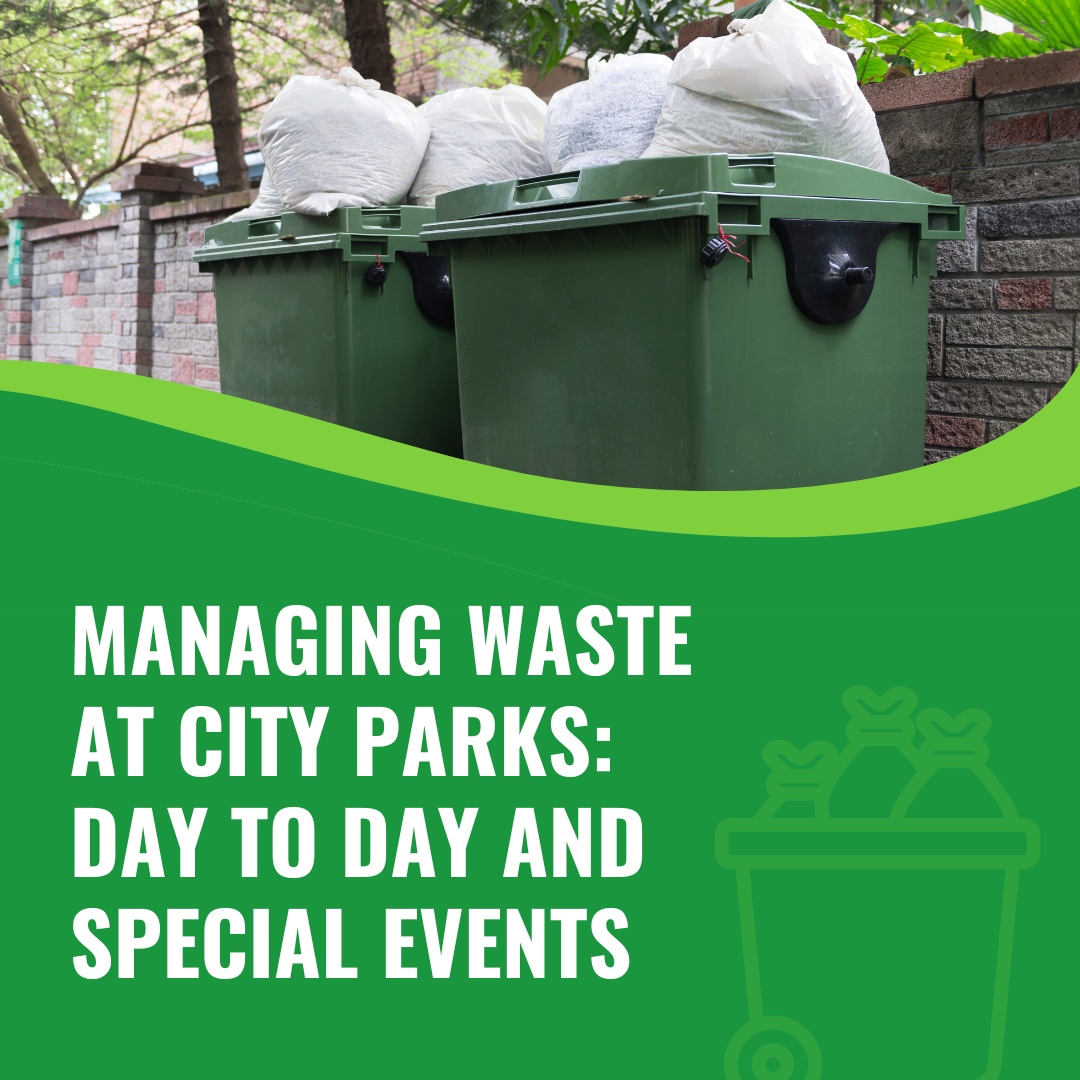We use cookies to make your experience better. To comply with the new e-Privacy directive, we need to ask for your consent to set the cookies. Learn more.
Managing Waste at City Parks, Day to Day and During Special Events
City parks offer a refuge from concrete and cars, but managing waste to keep green spaces green can be more of a challenge than you'd think. The majority of visitors never see or think about the complex waste management challenges these public spaces face — which is just how park managers like it. If visitors have trash collection on their mind, it's likely that something amiss, like an overflowing trash can, has caused it.

So what makes waste management in parks so difficult? The problems are highly dependent on the location and amenities of the park, but here's a smattering of issues that public spaces face:
-
High-attendance events cause spikes in trash volume.
-
Visitors aren't sure how to separate waste.
-
Reduced city budgets lead to maintenance staff shortages.
And that's just the start. Depending on the exact nature of the park, maintenance workers likely face other unique challenges. Nevertheless, here are some ideas for the above problems that are common to many city parks.
-
Coordinate with local non-profits to find volunteers for event series.A park in Redmond, Washington has a popular summer concert series that generates large amounts of waste. The sponsors wanted the events to become carbon-neutral, which necessitated separating waste and encouraging vendors to use recyclable and compostable materials.
To achieve this admirable goal, the park offers free admission to volunteers who help pick up litter and manage the waste bins. These reinforcements allow park staff to keep up with the huge influx of waste without ballooning the city budget.
The program does more than keep the park clean, though. The focus on being carbon-neutral teaches concert-goers about waste separation and encourages vendors to use compostable cups and containers. This creates momentum toward sustainability beyond the borders of the park. The EPA's write-up of this instructive success story is worth a read for any park manager.
-
Use clear signage with graphics to ensure proper separation.When people attend park events or family picnics, they may not take the extra time to read a sign. That makes graphics on the signs essential for ensuring proper sorting.
Placing recycling bins next to trash containers is also helpful. This nudges people to take an extra moment to decide which receptacle their items belong in. When recycling bins are hard to locate, many people will simply toss all items in the trash.
If your park collects compost, put these receptacles in places that make sense, such as next to concession stands or pavilions where picnics occur. People will likely not search for a compost bin, but if one is front and center with clear signage, most will happily use it.
-
Use hydraulic bin dumpers, so staff can easily empty bins, even when working alone.Management can prepare staffing and volunteers for planned events, but there are spikes in attendance (and consequently, waste) that are unforeseeable. Family gatherings and spur-of-the-moment barbecues can quickly fill bins to the brim.
Instead of calling in extra staff to assist, an investment in bin dumpers allows one person to empty heavy bins safely and quickly. Heavy-duty models like the Dumpmaster can empty a 660-pound bin in 20 seconds. All bin dumpers from Solus Group have casters, so they can be maneuvered from landfill dumpsters to compost piles or recycling.
Every park is unique but can benefit from emulating others.
When facing challenges that are unique to your climate or situation, do some research to see if other parks have grappled with the same issues. You may find that difficult problems have been solved with proven techniques or strategies. Solutions as simple as clear signage and mechanical lifting devices can make managing waste at city parks more successful without blowing the budget.
References:
"Compost. Recycle. Get your groove on (for free). Rinse. Repeat." KingCountyParks. King County Parks, 31 May 2017. Web. 13 Dec. 2017.
"King County's Marymoor Park Turns Up the Volume on Recycling." EPA. U.S. Environmental Protection Agency, Sept. 2008. PDF. 13 Dec. 2017.
"Recycling containers — from simple to sophisticated, tips for a successful set up." PortlandOregon. City of Portland, Oregon, 2017. Web. 13 Dec. 2017.
